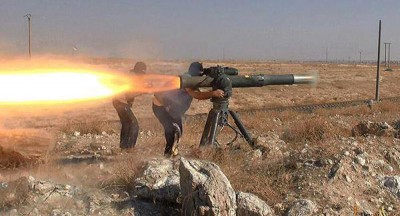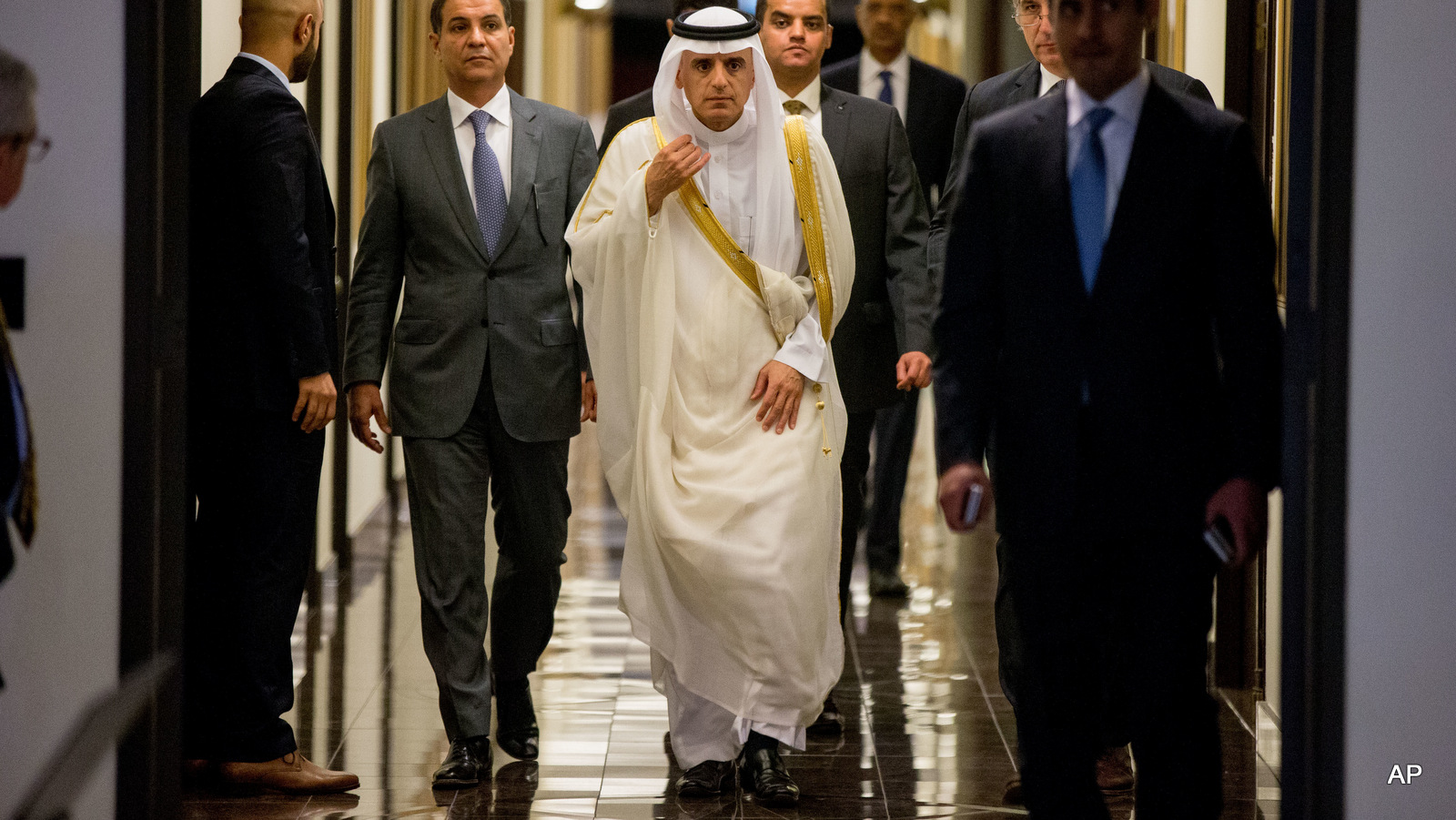British Weapons Used by Saudi Arabia to Kill Yemeni Civilians. Billions of Dollars of UK Weapons Sold to Kingdom
Saudi Diplomat to Brief British MPs Hours before Debate about Ending Weapons Sales

Saudi foreign minister’s private meeting with MPs branded a ‘lobbying visit’ amid growing evidence UK-made weapons used on Yemeni civilians
Saudi Arabia’s foreign minister is to visit the UK on Wednesday to “privately” brief British MPs over concerns that Britain could start restricting arms sales to the kingdom.
According to a House of Commons spokesman, Adel al-Jubeir is set to meet MPs in a private meeting in Portcullis House in London, just hours before the convening of a select committee to debate whether to call for a ban on arms sales to the Saudis.

Saudi Arabia’s Foreign Minister Adel al-Jubeir, center, is due to brief MPs in London on Wednesday.
The select committee on arms export controls meeting is also set to be held in private, but it is expected there will be a cross-party push during the meeting for the UK to suspend its multibillion-dollar arms sales to the kingdom.
The UK has sold billions of dollars of weapons to Saudi Arabia as it has prosecuted a war in Yemen against the Houthi movement, and amid claims UK-made weapons have been used in the indiscriminate bombing of civilians, hospitals and factories.
A spokeswoman from the Campaign Against the Arms Trade said the group would be staging a protest outside parliament over the meeting, which she described as a “clear lobbying visit”.
“They’re obviously concerned about the pressure [over arms sales],” she said, speaking to Middle East Eye.
The meetings will come two days after the British foreign secretary, Boris Johnson, has defended UK arms sales to Saudi Arabia, saying the Saudi-led bombing campaign in Yemen was not “in serious breach” of international humanitarian law.
Johnson said a report produced by Riyadh into eight separate allegations of indiscriminate bombing of civilians showed there was no such breach, which was the “key test” on deciding whether weapons sales should continue.
“The key test for our continued arms exports to Saudi Arabia in relation to international humanitarian law is whether those weapons might be used in a commission of a serious breach of international humanitarian law,” he said.
“Having regard to all the information available to us, we assess this test has not been met.”
During a debate in parliament on Monday, Parliamentary Under-Secretary of State for Foreign and Commonwealth Affairs Tobias Ellwood called on MPs critical of the Saudi campaign in Yemen to attend the meeting on Wednesday.
“I invite the right hon. Gentleman to join me when the Saudi Arabian Foreign Minister comes to this place on Wednesday to address any questions that are put by parliamentarians,” he said to MP Hillary Benn inresponse to a question over whether the government would be suspending arms sales.
I will make sure, because I will be moderating the event, that he is able to put some of these questions to the Foreign Minister.
In July, a Human Rights Watch report showed what was described as “compelling evidence” that British-made weapons had been used in attacks on civilians in Yemen.
CAAT said it would use the report as part of its court challenge against the British government to end weapons sales to Saudi Arabia.
“We’ve had 500 days of bombing, UK weapons have been used throughout – there’s been clear evidence from the beginning that they’re being used against civilian targets,” said the CAAT spokesperson.
CAAT earlier this year won the right to a judicial review of arms exports to Saudi Arabia, arguing that the British government could not guarantee UK-made weapons were not being used by Saudi Arabia against Yemeni civilians.
Johnson’s statement relies heavily on a report produced in Riyadh on 4 August, which investigated eight alleged attacks on Yemeni civilians, including the bombing of hospitals.
The report defends the bombing on the basis that the Saudis had received credible intelligence that enemy Houthi forces were in the area. In one case it offered compensation to the victims.
Johnson defended the cedibility of the report, saying the Saudis had “the best insight into their own procedures and will be able to conduct the most thorough and conclusive investigations”.
It will also allow the coalition forces to work out what went wrong and apply the lessons learned in the best possible way. This is the standard we set ourselves and our allies.
The UN last week said that at least 10,000 people have been killed in the 18-month Yemeni war.

